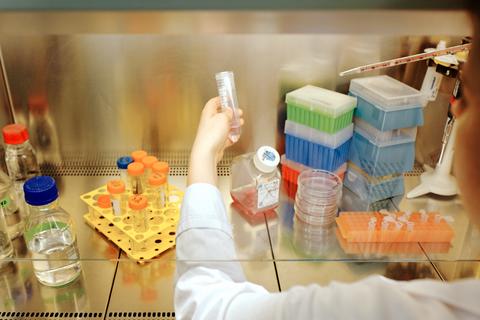
Immunology-Immunopathology-Immunotherapy
MRSU 959
-
Fédération
The Immunology-Immunopathology-Immunotherapy (i3) laboratory, created in 2009, is devoted to translational systems immunology. It aims to contribute to advance knowledge in fundamental immunology and to develop innovative immunotherapies, especially for auto-immune & inflammatory diseases and allergy. i3 has implemented systems biology approaches for analyzing the complexity of cellular interactions and regulations during immune responses and immunotherapies. i3 masters the analysis of complex datasets from cytomics, genetics, microbial metagenomics, transcriptomic and proteomic studies, with a special expertise in studying the TCR repertoire of T lymphocytes. i3 gathers immunologists, clinicians, bioinformaticians, mathematicians, computer scientists and statisticians that collectively create the multidisciplinary skills necessary to its ambition.
The laboratory i3 is organized in three themes:
Clinical immunology & Biotherapy (CiB) aims at (i) exploring the immune system in health and diseases and (ii) developing and validating new immunotherapies in humans. This theme associates a clinical immunopathology component and a more fundamental component on regulatory T-cell (Treg) biology. It has a recognized expertise in translational immunology and has developed a platform specialized for deep immunophenotyping. CiB assembles researchers with scientific expertise in cellular immunology, more specifically in Treg, and practicing medical doctors with hospital activities in the field of immunological diseases.
Experimental immunology & Biotherapy (EiB) aims at (i) exploring the immune system in physiological and pathological contexts and (ii) developing and validating new immunotherapies in mice. EiB has a recognized expertise in Treg, follicular T cells and dendritic cells biology and vaccination. It develops innovative immunotherapies with the specific aim of inducing immune tolerance and applying the strategies to treat immune disorders. Two different approaches are developed: one based on Treg-mediated therapies and one based on antigen-specific tolerogenic vaccination, for which a proof of concept was recently achieved. Our research is mainly based on pre-clinical studies focusing on models of immune-mediated disorders, notably autoimmune & inflammatory diseases and allergies.
Integrative immunology (i2) tackles the global analysis and modeling of the complexity of the immune system. Its contribution is to enlarge the frontiers of immunology in the context of complex systems with theoretical and experimental approaches. Through its research activities, i2 participates to medical research diagnosis and therapies, therefore contributing to the overall “bench to bedside” research strategy proposed at the level of the research unit. i2 promotes and develops systems immunology by the development of new statistical analysis strategies, as well as computer modeling and simulation schemes, contributes actively to the training of young researchers in the laboratory, as well as at the university level, in the field of systems biology.
Director
-
MARIOTTI FERRANDIZ Encarnita
Autres tutelles
- Institut National de la Santé et de la Recherche Médicale | INSERM
- Sorbonne Université
Contact details
Adresse postale
75013 Paris
-
+33 1 42 17 74 61
